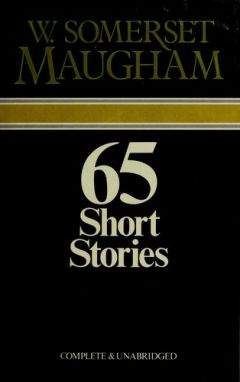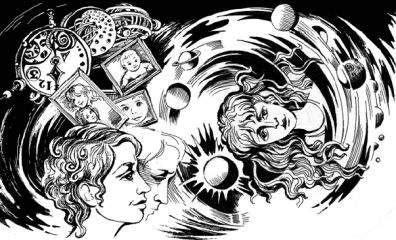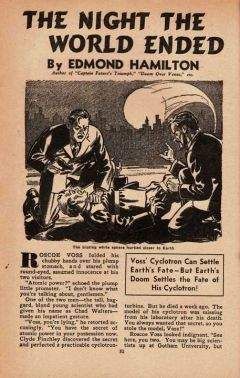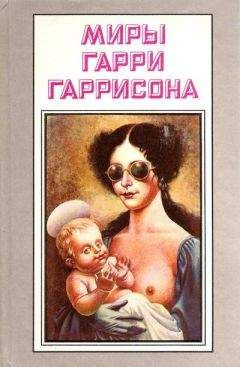Somerset Maugham - Sixty-Five Short Stories

Скачивание начинается... Если скачивание не началось автоматически, пожалуйста нажмите на эту ссылку.
Жалоба
Напишите нам, и мы в срочном порядке примем меры.
Описание книги "Sixty-Five Short Stories"
Описание и краткое содержание "Sixty-Five Short Stories" читать бесплатно онлайн.
It was with surprise that I received two or three days later a copy of his novel with a very flattering dedication. I read it. It was obviously autobiographical. The scene was a small town in Sussex, and the characters of the upper middle class that strives to keep up appearances on an inadequate income. The humour was rather brutal and rather vulgar. It grated on me, for it consisted chiefly of mockery at people because they were old and poor. Peter Melrose did not know how hard those misfortunes are to bear, and that the efforts made to cope with them are more deserving of sympathy than of derision. But there were descriptions of places, little pictures of a room or impressions of the countryside, which were excellently done. They showed tenderness and a sense of the spiritual beauty of material things. The book was written easily, without affectation, and with a pleasant feeling for the sound of words. But what made it indeed somewhat remarkable, so that I understood why it had attracted attention, was the passion that quivered in the love story of which the plot, such as it was, consisted. It was, as is the modern fashion, more than a trifle coarse and, again in the modern fashion, it tailed off vaguely, without any particular result, so that everything was left in the end pretty much as it had been in the beginning; but you did get the impression of young love, idealistic and yet vehemently sexual; it was so vivid and so deeply felt that it took your breath away. It seemed to throb on the printed page like the pulse of life. It had no reticence. It was absurd, scandalous, and beautiful. It was like a force of nature. That was passion all right. There is nothing, anywhere, so moving and so awe-inspiring.
I wrote to Peter Melrose and told him what I thought of his book, then suggested that we might lunch together. He rang me up next day and we made a date.
I found him unaccountably shy when we sat down opposite one another at a table in a restaurant. I gave him a cocktail. He talked glibly enough, but I could not help seeing that he was ill at ease. I gained the impression that his self-assurance was a pose assumed to conceal, from himself, maybe, a diffidence that tortured him. His manners were brusque and awkward. He would say a rude thing and then laugh nervously to cover his own embarrassment. Though he pretended to be so sure of himself he wanted all the time to be reassured by you. By irritating you, by saying the things he thought would annoy, he tried to force from you some admission, tacit it might be, that he was as wonderful as he longed to think himself. He wanted to despise the opinion of his fellows, and nothing was more important to him. I thought him rather an odious young man, but I did not mind that. It is very natural that clever young men should be rather odious. They are conscious of gifts that they do not know how to use. They are exasperated with the world that will not recognize their merit. They have something to give, and no hand is stretched out to receive it. They are impatient for the fame they regard as their due. No, I do not mind odious young men; it is when they are charming that I button up the pockets of my sympathy.
Peter Melrose was extremely modest about his book. He blushed through his reddish skin when I praised what I liked in it, and accepted my strictures with a humility that was almost embarrassing. He had made very little money out of it, and his publishers were giving him a small monthly allowance in advance of royalties on the next one. This he had just started, but he wanted to get away to write it in peace, and knowing I lived on the Riviera he asked me if I could tell him of a quiet place where he could bathe and live cheaply. I suggested that he should come and spend a few days with me so that he could look about till he found something to suit him. His green eyes sparkled when I proposed this and he flushed.
'Shouldn't I be an awful nuisance?'
'No. I shall be working. All I can offer you is three meals a day and a room to sleep in. It'll be very dull, but you can do exactly what you like.'
'It sounds grand. May I let you know if I decide to come?'
'Of course.'
We separated, and a week or two later I went home. This was in May. Early in June I received a letter from Peter Melrose asking, if I had really meant what I said when I invited him to spend a few days with me, whether he might arrive on such and such a date. Well, at the time I had meant it, but now, a month later, I remembered that he was an arrogant and ill-bred youth, whom I had seen but twice and wasn't in the least interested in, and I didn't mean it any longer. It seemed to me very likely that he would be bored stiff. I lived a very quiet life and saw few people. And I thought it would be a great strain on my nerves if he were as rude as I knew he could be, and I as his host felt it behoved me to keep my temper. I saw myself driven beyond endurance, and ringing the bell to have his clothes packed and the car brought round to take him away within half an hour. But there was nothing to do about it. It would save him the cost of board and lodging to spend a short period with me, and if he was tired and unhappy as he said in his letter it might be that it would do him good. I sent him a wire and shortly afterwards he arrived.
He looked very hot and grubby in his grey flannel trousers and brown tweed coat when I met him at the station, but after a swim in the pool he changed into white shorts and a Cochet shirt. He looked then quite absurdly young. He had never been out of England before. He was excited. It was touching to see his delight. He seemed, amid those unaccustomed surroundings, to lose his sense of himself, and he was simple, boyish and modest. I was agreeably surprised. In the evening, after dinner, sitting in the garden, with only the croaking of the little green frogs to break the silence, he began talking to me of his novel. It was a romantic story about a young writer and a celebrated prima donna. The theme was reminiscent of Ouida, the last thing I should have expected this hard-boiled youth to write, and I was tickled; it was odd how the fashion completed the circle and returned generation after generation to the same themes. I had no doubt that Peter Melrose would treat it in a very modern way, but there it was, the same old story as had entranced sentimental readers in the three-volume novels of the eighties. He proposed to set it in the beginning of the Edwardian era, which to the young has already acquired the fantastic, far-away feeling of a past age. He talked and talked. He was not unpleasant to listen to. He had no notion that he was putting into fiction his own day-dreams, the comic and touching day-dreams of a rather unattractive, obscure young man who sees himself beloved, to the admiration of the whole world, by an incredibly beautiful, celebrated, and magnificent woman. I always enjoyed the novels of Ouida, and Peter's idea did not at all displease me. With his charming gift of description, his vivid, ingenuous way of looking at material things, fabrics, pieces of furniture, walls, trees, flowers, and his power of representing the passion of life, the passion of love, that thrilled every fibre of his own uncouth body, I had a notion that he might well produce something exuberant, absurd, and poetical. But I asked him a question.
'Have you ever known a prima donna?'
'No, but I've read all the autobiographies and memoirs that I could find. I've gone into it pretty thoroughly. Not only the obvious things, you know, but I've hunted around in all sorts of byways to get the revealing touch or the suggestive anecdote.'
'And have you got what you wanted?'
'I think so.'
He began to describe his heroine to me. She was young and beautiful, wilful it is true and with a quick temper, but magnanimous. A woman on the grand scale. Music was her passion; there was music not only in her voice, but in her gestures and in her inmost thoughts. She was devoid of envy, and her appreciation of art was such that when another singer had done her an injury she forgave her when she heard her sing a role beautifully. She was of a wonderful generosity, and would give away everything she possessed when a story of misfortune touched her soft heart. She was a great lover, prepared to sacrifice the world for the man she loved. She was intelligent and well-read. She was tender, unselfish, and disinterested. In fact she was much too good to be true.
'I think you'd better meet a prima donna, I said at last.
'How can I?'
'Have you ever heard of La Falterona?'
'Of course I have. I've read her memoirs.'
'She lives just along the coast. I'll ring her up and ask her to dinner.'
'Will you really? It would be wonderful.'
'Don't blame me if you don't find her quite what you expect.'
'It's the truth I want.'
Everyone has heard of La Falterona. Not even Melba had a greater reputation. She had ceased now to sing in opera, but her voice was still lovely, and she could fill a concert hall in any part of the world. She went for long tours every winter, and in summer rested in a villa by the sea. On the Riviera people are neighbours if they live thirty miles from one another, and for some years I had seen a good deal of La Falterona. She was a woman of ardent temperament, and she was celebrated not only for her singing, but for her love affairs: she never minded talking about them, and I had often sat entranced for hours while with the humour which to me was her most astonishing characteristic she regaled me with lurid tales of royal or very opulent adorers. I was satisfied that there was at least a measure of truth in them. She had been married, for short periods, three or four times, and in one of these unions had annexed a Neapolitan prince. Thinking that to be known as La Falterona was grander than any title, she did not use his name (to which indeed she had no right, since after divorcing him she had married somebody else) but her silver, her cutlery, and her dinner-service were heavily decorated with a coat of arms and a crown, and her servants invariably addressed her as madame la princesse. She claimed to be a Hungarian, but her English was perfect; she spoke it with a slight accent (when she remembered), but with an intonation suggestive, I had been told, of Kansas City. This she explained by saying that her father was a political exile who had fled to America when she was no more than a child; but she did not seem quite sure whether he was a distinguished scientist who had got into trouble for his liberal views, or a Magyar of high rank who had brought down on his head the imperial wrath because he had had a love affair with an Archduchess. It depended on whether she was just an artist among artists, or a great lady among persons of noble birth.
With me she was not natural, for that she could never have been if she had tried, but franker than with anyone else. She had a natural and healthy contempt for the arts. She genuinely looked upon the whole thing as a gigantic bluff, and deep down in her heart was an amused sympathy for all the people who were able to put it over on the public. I will admit that I looked forward to the encounter between Peter Melrose and La Falterona with a good deal of sardonic amusement.
She liked coming to dine with me because she knew the food was good. It was the only meal she ate in the day, for she took great care of her figure, but she liked that one to be succulent and ample. I asked her to come at nine, knowing that was the earliest hour she dreamt of eating, and ordered dinner for half past. She turned up at a quarter to ten. She was dressed in apple-green satin, cut very low in front, with no back at all, and she wore a string of huge pearls, a number of expensive-looking rings, and on her left arm diamond and emerald bracelets from the wrist to the elbow. Two or three of them were certainly real. On her raven-black hair was a thin circlet of diamonds. She could not have looked more splendid if she had been going to a ball at Stafford House in the old days. We were in white ducks.
'How grand you are,' I said. 'I told you it wasn't a party.'
She flashed a look of her magnificent black eyes at Peter.
'Of course it's a party. You told me your friend was a writer of talent. I am only an interpreter.' She ran one finger down her flashing bracelets. 'This is the homage I pay to the creative artist.'
I did not utter the vulgar monosyllable that rose to my lips, but offered her what I knew was her favourite cocktail. I was privileged to call her Maria, and she always called me Master. This she did, first because she knew it made me feel a perfect fool, and secondly because, though she was in point of fact not more than two or three years younger than I, it made it quite clear that we belonged to different generations. Sometimes, however, she also called me you dirty swine. This evening she certainly might very well have passed for thirty-five. She had those rather large features which somehow do not seem to betray age. On the stage she was a beautiful woman, and even in private life, notwithstanding her big nose, large mouth, and fleshy face, a good-looking one. She wore a brown make-up, with dark rouge, and her lips were vividly scarlet. She looked very Spanish and, I suspected, felt it, for her accent at the beginning of dinner was quite Sevillian. I wanted her to talk so that Peter should get his money's worth, and I knew there was but one subject in the world that she could talk about. She was in point of fact a stupid woman who had acquired a line of glib chatter which made people on first meeting her think she was as brilliant as she looked; but it was merely a performance she gave, and you soon discovered that she not only did not know what she was talking about, but was not in the least interested in it. I do not think she had ever read a book in her life. Her knowledge of what was going on in the world was confined to what she was able to gather by looking at the pictures in the illustrated press. Her passion for music was complete bunkum. Once at a concert to which I went with her she slept all through the Fifth Symphony, and I was charmed to hear her during the interval telling people that Beethoven stirred her so much that she hesitated to come and hear him, for with those glorious themes singing through her head, it meant that she wouldn't sleep a wink all night. I could well believe she would lie awake, for she had had so sound a nap during the Symphony that it could not but interfere with her night's rest.
But there was one subject in which her interest never failed. She pursued it with indefatigable energy. No obstacle prevented her from returning to it; no chance word was so remote that she could not use it as a stepping-stone to come back to it, and in effecting this she displayed a cleverness of which one would never have thought her capable. On this subject she could be witty, vivacious, philosophic, tragic and inventive. It enabled her to exhibit all the resources of her ingenuity. There was no end to its ramifications, and no limit to its variety. This subject was herself. I gave her an opening at once and then all I had to do was to make suitable interjections. She was in great form. We were dining on the terrace and a full moon was obligingly shining on the sea in front of us. Nature, as though she knew what was proper to the occasion, had set just the right scene. The view was framed by two tall black cypresses, and all round us on the terrace the orange trees in full flower exhaled their heady perfume. There was no wind, and the candles on the table flamed with a steady softness. It was a light that exactly suited La Falterona. She sat between us, eating heartily and thoroughly appreciating the champagne, and she was enjoying herself. She gave the moon a glance. On the sea was a broad pathway of silver.
Подписывайтесь на наши страницы в социальных сетях.
Будьте в курсе последних книжных новинок, комментируйте, обсуждайте. Мы ждём Вас!
Похожие книги на "Sixty-Five Short Stories"
Книги похожие на "Sixty-Five Short Stories" читать онлайн или скачать бесплатно полные версии.
Мы рекомендуем Вам зарегистрироваться либо войти на сайт под своим именем.
Отзывы о "Somerset Maugham - Sixty-Five Short Stories"
Отзывы читателей о книге "Sixty-Five Short Stories", комментарии и мнения людей о произведении.














